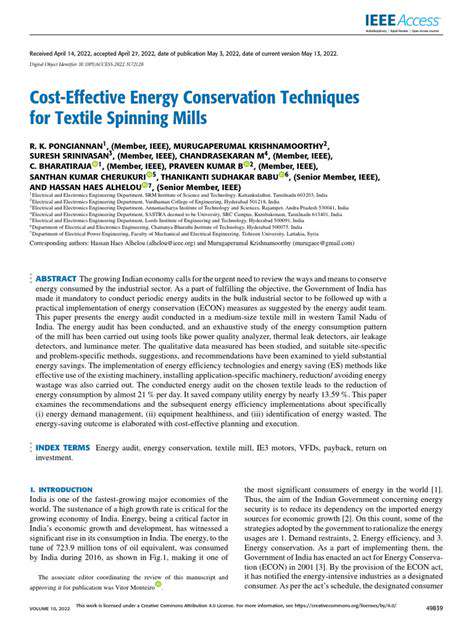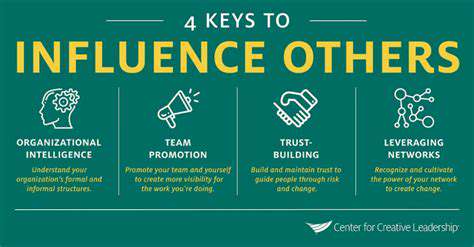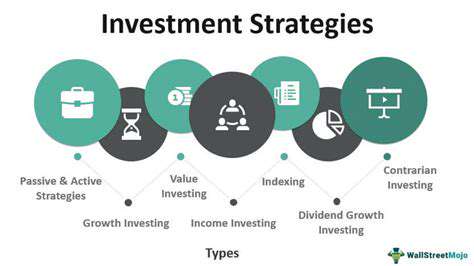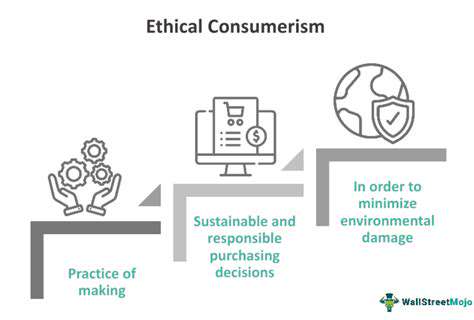Sustainable Practices Encompass Various Aspects of Daily Life
The Importance of Sustainable Living
The Environmental Impact of Daily Choices
Sustainable living is crucial in mitigating the adverse effects of climate change and environmental degradation. Every choice we make, from the food we eat to the transportation we use, has a ripple effect on our planet. For instance, consuming locally-sourced foods not only supports local economies but also reduces carbon emissions associated with long-distance food transport.
Moreover, embracing renewable energy sources, such as solar or wind power, significantly decreases our reliance on fossil fuels. By making conscious decisions in our daily lives, we can collectively reduce our carbon footprint, conserve natural resources, and promote a healthier ecosystem for future generations.
Integrating Sustainability into Everyday Life
Integrating sustainable practices into our daily routines does not have to be overwhelming. Simple actions, such as reducing single-use plastics and embracing eco-friendly products, can lead to meaningful change. For instance, opting for reusable bags, bottles, and utensils not only minimizes waste but also sets a positive example for others to follow.
Additionally, individuals can focus on their energy consumption by employing energy-efficient appliances, turning off devices when not in use, and considering smart home technology. By making these small changes, we can contribute to a larger movement towards sustainability and inspire our communities to prioritize environmentally-friendly living.
Key Areas of Sustainable Practices
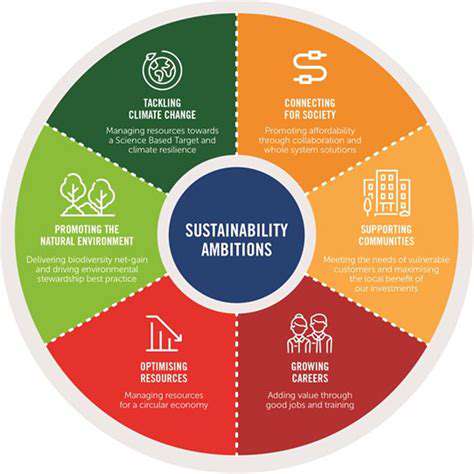
Energy Efficiency in Households
One of the most impactful areas to focus on for sustainability is energy efficiency in our homes. By making small changes, we can significantly reduce our carbon footprint. Simple actions like switching to LED light bulbs or using energy-efficient appliances can make a notable difference. Regularly maintaining heating and cooling systems also ensures they operate at peak efficiency. Moreover, utilizing smart home technology allows us to monitor energy usage in real-time, leading to further reductions.
In addition to energy-efficient appliances, homeowners should also consider renewable energy sources. Solar panels are increasingly accessible and can provide substantial savings on electricity bills. Investing in green energy not only supports the local economy but also contributes to a cleaner environment. Furthermore, it can increase property value, making it a wise long-term investment. Ultimately, embracing these practices helps foster a culture of sustainability in our communities.
Another vital aspect is improving home insulation. By ensuring that homes are well-insulated, we can reduce the energy needed to heat and cool our spaces. This not only lowers utility bills but also minimizes the strain on local power grids. Regularly checking for drafts and sealing gaps can be a simple yet effective way to improve a home's energy efficiency. Collectively, these steps can lead to substantial environmental benefits.
Furthermore, educating family members about energy-saving practices can amplify efforts. Encouraging everyone to turn off lights when leaving a room or unplugging devices when not in use helps instill responsibility. Creating a culture of conservation at home sets the foundation for sustainable living. Engaging children in these habits from a young age ensures they grow up with a strong environmental consciousness.
Lastly, participating in local energy-saving initiatives can enhance community sustainability efforts. Many local governments offer programs that incentivize residents to adopt energy-efficient practices. By collaborating with neighbors, we can make larger investments in sustainable infrastructure, such as community solar farms or green community programs. Acting together fosters a shared commitment to sustainability and helps amplify individual efforts into collective success.
Waste Reduction Strategies
Waste reduction is another crucial area of sustainable practices that we can implement in our daily lives. The concept of the "three Rs"—reduce, reuse, and recycle—should be at the forefront of our waste management strategies. By reducing our consumption and reusing items where possible, we can significantly cut down on the waste we generate. Simple actions like buying in bulk or opting for products with minimal packaging can have a remarkable impact.
Recycling is a vital part of waste reduction, but it begins with knowing what can and cannot be recycled. To maximize recycling efforts, individuals should familiarize themselves with local guidelines. Taking the time to sort waste properly ensures that materials are processed correctly and not sent to landfills. Encouraging others to understand recycling rules can lead to a more effective community effort and minimize contamination.
Composting also plays a significant role in reducing organic waste. By diverting kitchen scraps and yard waste from landfills, composting enriches soil and reduces the need for chemical fertilizers. This practice can be a sustainable solution for gardeners and urban dwellers alike. Setting up a composting system in both small and large spaces can be accomplished with minimal effort, providing long-lasting environmental benefits.
In addition to these practices, incorporating mindful purchasing habits is essential. Opting for products from companies that prioritize sustainability and ethical practices can help shift market demand towards more environmentally friendly options. Supporting local businesses not only reduces transportation emissions but also fosters economic resilience in communities. The conscious consumer is a powerful force for promoting sustainable practices.
Finally, engaging in community clean-up efforts or waste reduction campaigns can effectively extend our sustainable actions beyond individual households. Many communities organize events to recycle electronic waste or pick up litter in local parks. Volunteering for such initiatives builds community ties while advocating for a cleaner environment. Working together, we can inspire broader systemic changes that promote sustainability.
Waste Reduction and Recycling
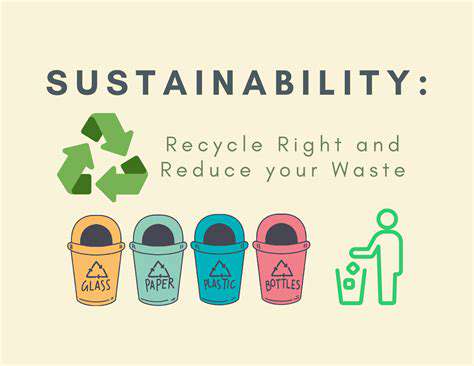
Understanding Waste Reduction Techniques
Waste reduction is a crucial component of sustainable living that aims to minimize the amount of waste generated. Implementing effective waste reduction techniques can significantly lessen the environmental impact of our daily activities. Some common strategies include reusing items, buying in bulk, and choosing products with less packaging.
Additionally, before disposing of an item, it's essential to evaluate if it can be repaired or donated. This approach not only prolongs the lifespan of products but also contributes to the circular economy, reducing the need for new resources.
Education and awareness play a pivotal role in promoting waste reduction. Communities can hold workshops, distribute informative materials, and provide resources to help individuals learn how to reduce their waste. An engaged community is often more successful in implementing these practices.
Moreover, businesses are increasingly adopting waste reduction initiatives. By integrating waste minimization into their operation strategies, companies can enhance their sustainability and appeal to environmentally conscious consumers.
Ultimately, encouraging a culture of waste reduction requires joint efforts from individuals, communities, and businesses. Together, we can create a more sustainable future by being mindful of the waste we generate.
The Importance of Recycling
Recycling is an integral part of waste management that helps conserve natural resources and reduce landfill waste. By recycling materials such as paper, glass, and plastics, we can keep valuable resources in circulation and minimize the need for new raw materials. This not only reduces waste but also lowers greenhouse gas emissions associated with production processes.
Recycling programs often vary by region, so it's crucial to understand local guidelines and requirements. Participating in these programs ensures that recyclable materials are correctly sorted and processed, maximizing their potential for reuse.
It's also important to note that recycling isn’t a catch-all solution; it should be a part of a broader waste management strategy that includes reduction and reuse. Emphasizing the hierarchy of waste management helps highlight the importance of preventing waste before it is created.
Education plays a critical role in improving recycling rates. Campaigns that inform citizens about what can and cannot be recycled can help reduce contamination in recycling streams, making recycling processes more efficient.
Community involvement in recycling initiatives can lead to more sustainable results. Local events, such as clean-up days or recycling drives, can inspire and motivate citizens to participate and raise awareness about the significance of recycling in community success.
Practical Tips for Everyday Waste Management
Adopting sustainable waste management practices in daily life can begin with simple changes. Start by carrying reusable bags for shopping, which can drastically reduce plastic consumption. Each small effort contributes towards a larger goal of environmental sustainability.
Another effective strategy includes organizing a compost system for organic waste, such as food scraps and garden waste. Composting not only reduces the amount of waste sent to landfills but also enriches the soil, making it a win-win for gardening enthusiasts.
Be mindful when shopping; prioritize purchasing products with minimal or biodegradable packaging. This choice directly impacts the amount of waste generated at home and encourages manufacturers to adopt more sustainable packaging practices.
Tracking your waste can also help to identify patterns and areas for improvement. By keeping a waste diary or checklist, you can set realistic goals and monitor progress in your waste reduction journey.
Finally, engage friends and family in sustainable practices. Sharing tips, organizing community challenges, or even simply discussing waste management increases awareness and can inspire others to adopt similar practices, ultimately leading to a collective positive impact.
Water Conservation Practices
Understanding Water Scarcity
Water scarcity is a pressing global issue that affects millions of people worldwide. It is estimated that over 2 billion people live in countries experiencing high water stress. This situation is exacerbated by factors such as climate change, population growth, and pollution.
Understanding the causes of water scarcity is crucial for implementing effective conservation practices. Depleting freshwater resources due to over-extraction, inefficient agricultural practices, and urbanization are major contributors to this challenge.
The consequences of water scarcity can be severe, leading to food insecurity, health risks, and conflicts over water resources. To combat these challenges, communities must adopt sustainable water management strategies.
Educating individuals about the importance of water conservation can instigate changes in behavior, encouraging more responsible usage of water in daily activities. Awareness is the first step toward collective action in tackling water scarcity.
By recognizing the severity of water scarcity, individuals can be motivated to conserve water and contribute to broader efforts aimed at sustainable management of this vital resource.
Practical Water Conservation Techniques
There are numerous practical techniques that individuals can implement at home to conserve water. Simple habits such as turning off the tap while brushing teeth or taking shorter showers can lead to significant reductions in water use.
Installing low-flow fixtures, such as showerheads and faucets, can greatly decrease water consumption without sacrificing performance. These fixtures limit the amount of water that flows through them, thereby encouraging efficiency.
In the garden, practices such as drip irrigation and rainwater harvesting can play a crucial role in conserving water. These methods allow for more targeted watering, reducing evaporation and runoff.
Households can also optimize their appliance use by only running full loads in dishwashers and washing machines, further reducing water waste. Each small change contributes to a larger impact on overall water conservation.
By embracing these practical techniques, individuals can save water, reduce their utility bills, and contribute to a more sustainable future for our planet.
Impact of Water Conservation on the Environment
Water conservation has a positive impact on the environment through the preservation of ecosystems. When water is used wisely, natural habitats are less likely to be disrupted, allowing flora and fauna to thrive.
Reducing water consumption also decreases the energy required for water treatment and distribution. This relationship means that conserving water can lower greenhouse gas emissions, contributing to the fight against climate change.
Moreover, sustainable water management practices can help to maintain water quality. Reducing runoff from agricultural and urban areas minimizes pollutants entering waterways, promoting healthier ecosystems.
Communities that prioritize water conservation often witness improved resilience against droughts and floods. Better water management means that communities can withstand climate variability more effectively.
Community Initiatives and Education
Community initiatives play a crucial role in promoting water conservation practices. Local governments and organizations can facilitate awareness campaigns to educate residents about the importance of conserving water.
Workshops, school programs, and public events can engage community members and provide practical tips on how to conserve water in their homes and gardens. Collaborative efforts foster a sense of responsibility toward water stewardship.
Involving the community in water conservation efforts can also lead to innovative solutions tailored to specific local challenges. Residents may brainstorm and implement ideas that align with their environment and lifestyle.
Partnerships between local businesses and environmental organizations can amplify the message of water conservation, encouraging sustainable practices within the community.
Ultimately, by fostering a culture of education and shared responsibility, communities can make significant strides in conserving water and ensuring the sustainability of this essential resource.
Community Engagement and Responsibility
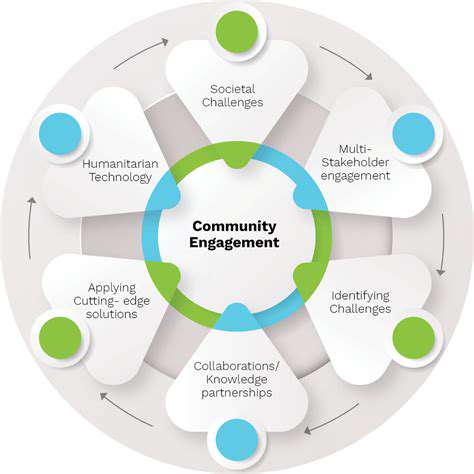
1. The Importance of Community Involvement
Community involvement is a cornerstone of sustainable practices. Engaging with local events and initiatives creates a sense of togetherness, enabling individuals to impact their environment positively. When community members share knowledge and resources, they cultivate a stronger, more resilient society. Building this network can lead to various sustainable projects focused on health, education, and environmental stewardship.
Moreover, active participation in community programs can help individuals develop essential skills and increase their awareness of sustainability issues. Workshops, volunteering opportunities, and community clean-up events are practical ways to contribute. By actively participating, individuals not only enhance their understanding but also empower others to take action.
It is also important to foster connections with local businesses that share sustainable values. Supporting these businesses can create a thriving local economy that prioritizes sustainability. Additionally, collaboration between community members and local organizations often leads to innovative solutions tailored to specific challenges.
As communities unite, they can more effectively address larger-scale issues like waste management, renewable energy, and local food production. Harnessing collective efforts can amplify the impact of individual actions, creating a ripple effect in the community. Sustainable living ultimately thrives on shared commitment and unified goals.
In summary, community engagement plays a crucial role in fostering a culture of sustainability. By working together, communities can draw on shared experiences and perspectives to create lasting change that benefits everyone.
2. Strategies for Building a Responsible Community
Building a responsible community involves implementing inclusive practices that consider diverse perspectives and needs. Establishing open channels of communication is fundamental for successful community engagement. Regularly scheduled meetings, newsletters, and social media platforms are effective tools to keep everyone informed and involved.
Education is another key strategy for promoting responsibility within the community. Hosting workshops and seminars on sustainability topics – such as recycling, energy conservation, and organic gardening – can empower individuals to make informed choices. Knowledge is a powerful tool that enables community members to advocate for sustainable practices effectively.
Incorporating sustainability into local policies can also greatly influence community responsibility. By supporting regulations that promote eco-friendly practices, residents can help create a framework for sustainable development. Policies such as incentives for green building and legislation for waste reduction can yield measurable benefits for both the environment and the economy.
Encouraging collaboration among various sectors, such as schools, businesses, and non-profits, can amplify the community's efforts. Joint initiatives focused on environmental sustainability can lead to resource sharing and innovative partnerships. When multiple stakeholders work collectively towards a shared goal, it strengthens the overall mission.
Lastly, celebrating successes within the community fosters a sense of pride and motivation to maintain responsible practices. Recognition of achievements, no matter how small, can inspire others to contribute their efforts towards sustainability. By regularly acknowledging collective accomplishments, communities can sustain momentum in their journey towards a greener future.
The Role of Technology in Sustainability
The Impact of Renewable Energy Sources
Renewable energy sources, such as solar, wind, and hydroelectric power, play a crucial role in reducing our carbon footprint. By harnessing these natural resources, we can significantly decrease our reliance on fossil fuels, which are a major contributor to greenhouse gas emissions. This transition not only benefits the environment but also enhances energy security and sustainability.
Investing in renewable energy infrastructure can lead to job creation in new sectors, promoting economic growth while fostering a healthier planet. As technology advances, the efficiency and affordability of renewable energy systems continue to improve, making them a feasible option for households and industries alike.
Additionally, integrating renewable energy solutions into our daily lives can lead to greater public awareness about environmental issues. As individuals witness the benefits of clean energy, such as lower utility bills and reduced pollution, it encourages further support for sustainable practices at both the community and governmental levels.
Smart Technology and Energy Efficiency
Smart home technology has revolutionized the way we consume energy. Devices such as smart thermostats, energy monitors, and intelligent lighting systems allow homeowners to optimize their energy use. These technologies can automatically adjust settings based on occupancy patterns, ensuring that energy is not wasted when spaces are unused while maintaining comfort for residents.
Furthermore, businesses are increasingly adopting smart technologies to enhance operational efficiency. By utilizing data analytics and Internet of Things (IoT) devices, companies can track their energy consumption in real-time. This awareness helps identify areas for improvement and implement strategies to reduce energy use, ultimately contributing to sustainability goals.
The integration of AI and machine learning into energy management systems can enhance predictive maintenance, minimizing downtime and energy waste. This innovation not only lowers costs but also aligns with the wider goal of reducing the environmental impact of energy consumption across various sectors.
Community Engagement in Sustainable Practices
Community engagement is essential for promoting sustainable practices and fostering a culture of environmental responsibility. Local initiatives, such as community gardens, recycling programs, and clean-up events, encourage individuals to take an active role in preserving their surroundings. These activities not only beautify neighborhoods but also empower residents to make a tangible impact on their environment.
Educational programs aimed at raising awareness about sustainability can further ignite community involvement. Workshops on topics like composting, water conservation, and sustainable shopping empower individuals with knowledge and practical skills, inspiring them to make more environmentally friendly choices in their daily lives.
Partnerships between local organizations, businesses, and government agencies can amplify efforts towards sustainability. Collaborative projects can yield innovative solutions, pooling resources and expertise to tackle challenges like waste management and energy efficiency—ultimately leading to a more sustainable and resilient community.
